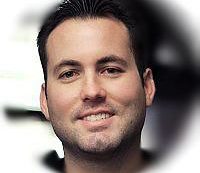Session Description: Blockchain technology may digitize identity, decentralizing it so people gain more control over their personal data. How would it affect security and privacy, how people receive government services, and even our concept of citizenship?
Below is an excerpt of the session. The full transcript can be found here.
Meltem Demirors: I’m very excited to be having this discussion around digital identity and what a future around digital identity on a blockchain may look like. How many people here in the room have heard of blockchain? Just a show of hands. All right, this is great. I feel like it’s impossible to go anywhere today without talking about or hearing about blockchain. So hopefully today’s discussion will help elucidate some of the great work that’s happening across organizations of all stripes that are really starting to bring some of this innovation around identity to the forefront of actual products, actual services that people consume.
I’m Melton Demirors, I’m with a company called Digital Currency Group. We’re a little bit of a unique company. We build, buy, and support bitcoin and blockchain technology companies, by leveraging our insights, our network, and our access to capital. What that means is, we act as a venture capital firm. We’ve invested in over 100 companies now, across 27 different countries, which all leverage blockchain technology, digital currencies, or distributed computing in some capacity. Some are b2b, some are c2c, some are b2c, so a lot of different ideas encapsulated in that portfolio. We also build and operate companies. We have a media company, CoinDesk, which I hope you will all go and read. They are a fantastic source of news for what’s happening in this industry.
We also have an asset management business called Grayscale, which has two products in the market that enable retail investors to access digital currencies in their portfolios. We also have a trading business that’s a fully licensed broker/dealer for institutions who want to interact with digital assets. It’s a very new company, but it gives me a lot of perspective, a lot of insight into what’s happening in this blockchain space. It also enables me to work with a lot of great corporations, like Microsoft, like Deloitte, Accenture, other institutions that are all looking at helping their clients use this technology. With that said, let’s just decide what is digital identity? The word identity has a lot of different meanings, so I went online and I looked it up. The internet tells me that, “A digital identity is information on an entity,” so a set of attributes that are used by systems that are used to represent an external agent. That agent could be a person, an organization, application, or a device. Today we have representatives from a variety of different companies. I’m going to let them each introduce themselves, but also I want to ask them each to talk about how they conceive identity and the digitization of identity, just in a short, two-minute statement. We’ll start with Melanie.
Melanie Shapiro: I’m the CEO of Tokenize. We build a consumer device that allows people to merge their physical personhood with their digital identity. We’re actually launching next month, in June. The way that I think of identity and digital identity is that it’s very separate in the physical world versus the virtual world. In your physical world, you have personhood. You are identified in a free country with democracy and free markets as a person and people respect you as a human being. Now, that got very complex as we had the internet and now all of a sudden, we have a digital life. In that digital life, we also have different digital versions of ourselves or digital identities.
The way I think about digital identity is it’s just a set of attributes that could be pointed back to a person. The problem in this space, very much so, has been that those attributes or those digital identities that make up who you are very much are becoming disconnected to personhood. That becomes very scary, because you as a person need to have control over your social or whatever kind of identity you have in the digital world. We’re building a solution to make it possible to merge your physical self with your digital self, so that you have complete user control of your identification, of your data. Without user control, the future of identity is very scary.
Daniel Buchner: I head the decentralized identity product and engineering work for Microsoft. We’re using a lot of the technology that Meltem alluded to, to develop systems that can restore identity in a self-starting way to the users or any other item that they’re used to identify. What I think of identity as is really self-attested and externally tested attributes. The state may attest that you’re at a certain height and weight on your driver’s license, for instance. That’s externally attested. Your height and weight may fluctuate, and you know what it is, or you have things that you self-attest. Self-attest means, “My favorite color is green,” right? I’m the authority on my favorite color, no one else is. I think identity is sort of the composition of those two things. A lot of stuff is self-attested, a ton of it comes from external sources. People’s view of your identity changes, from person to person. People see things very differently and identity is actually like a prism in that way.
Vinny Lingham: I’m co-founder and CEO of Civic. I’ll give you the long story. We started the company trying to solve the problem of voting. How do you allow population groups large and small to participate in democracy at scale? One of the key problems that you have to solve with that and enabling people to be able to vote on mobile phones, in the comfort of their home, security-wise, etcetera, is solving the problem of digital identity. How do you know it’s that person on that device? That’s the genesis for the thinking around the company. We wanted to build it in such a way that it could be globally distributed. We looked at technologies like blockchain, and we realized that we could build a global system where 7 billion people could be connected to the same system and be able to vote for their local and national governments. The biggest issue with building a system like this is that if we stored all your personal information in a central server, it would be the worst idea ever, in the history of mankind.
[LAUGHTER]
Lingham: We built a platform that actually distributed the ID credentials to devices. Your personal device holds your information and no one else’s. In doing that, the risk of an attack, a breach is minimal. They have to actually steal your device. We did some trials with Intel, so we’re able to store personal information on the chips. It’s called Software Guard Extensions. On the actual chip you can lock it down, kind of the way touch ID works with Apple. We basically are building this massive global distributed device-based identity platform, where you can use it to login to your bank account without passwords. You can log into anything by using some sort of biometric on the device and the credentials that are stored there. Our vision is to replace passports, driver’s licenses, you name it, with effectively whatever device you can secure and use.
David Treat: I lead our blockchain business for financial services and I’m the deputy head of it firm-wide, which has now given me great opportunity as a capital markets guy to get into all other sorts of other industries, which is a lot of fun. For us, there’s one way of thinking about all of the work that we do supporting our clients. There’s a common thread around a lot of it, which is the problems associated with today’s fragmented nature of identity. Whether it’s AMLKYC issues in financial services, our focus around—We’ve actually built and implemented a significant portion of the world’s border control systems and the like. We’ve now formed a dedicated blockchain identity team, to think across industry in each of these modes, in each of the unique business challenges in every ecosystem and industry, applying a lot of these concepts. So taking the notion of work we’re doing in biometrics to be able to affirmatively associate a human with an identity, very similar to things you’re working on Vinny. That’s who we are. As the world’s largest independent technology services company, we get involved in every form and flavor of this.






